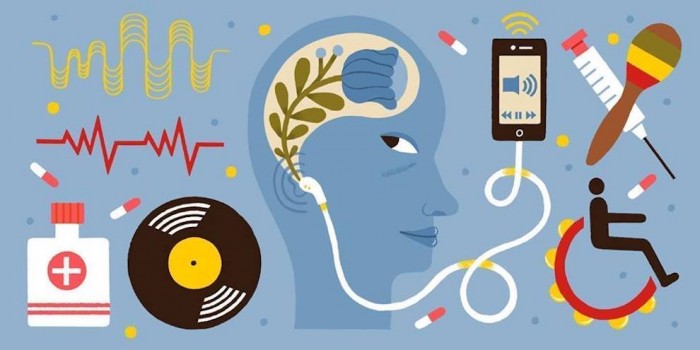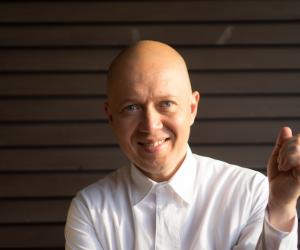
The Sync Project maps music against real-time biometrics gathered from wearables and sensors to find out more about how music can be used as precision medicine. Working with scientists, music lovers, technologists, musicians, patients and patient advocacy groups, Sync hopes to understand and decode the hyper-personalised therapeutic effect of music. How can music help with pain, fatigue and sleeplessness? Research has already shown that music triggers neural pathways that are linked to movement, learning and emotion. The Sync Project are currently collecting songs from the members of the public that help people sleep, relax, walk or run.
The Sync Project founder, Marko Ahtisaari will be speaking at Design Indaba Conference. Ahead of his trip, he's given us some insight into where the project is headed.
We all intuitively know that music can have powerful effects on our emotions and even behaviour. Whether it’s drowning out distractions at work, powering through a workout at the gym, or relaxing after a long day, music is an ally in many aspects of our life. Current technology has made access to a “celestial jukebox” of music almost universal but many are missing out on what may be music’s most powerful effects.
For example, a growing body of research has shown that music listening is effective for treatment of acute and chronic sleep disorders. This is great news for the estimated 15 per cent of adults globally that need help dealing with the symptoms of insomnia1. While music has already shown promise for specific medical conditions like sleep disorders and even neurological diseases such as Parkinson’s and Alzheimer's, the team at Sync Project believes the time to use music to support universal health and wellness goals has come.
I’m excited to participate at Design Indaba to further awareness about the effects of music on health and engage with other esteemed and emerging voices in design, art and science. We believe that by uncovering the deeper health benefits of music and designing systems for people to access them, we can change the face of personalised health forever. We invite you to join us in this quest at Design Indaba 2017.
Marko Ahtisaari will be speaking at Design Indaba Conference 2017. Book now.
---
About Sync Project
Sync Project is developing personalised music technology for health and wellness. We’ve made it our business to discover exactly how music affects people, and to harness that knowledge in new life, health, and even, work-enhancing ways.
1Stranges, S., Tigbe, W., Gómez-Olivé, F. X., Thorogood, M., & Kandala, N.-B. (2012). Sleep Problems: An Emerging Global Epidemic? Findings From the INDEPTH WHO-SAGE Study Among More Than 40,000 Older Adults From 8 Countries Across Africa and Asia. Sleep, 35(8), 1173–1181. https://doi.org/10.5665/sleep.2012







